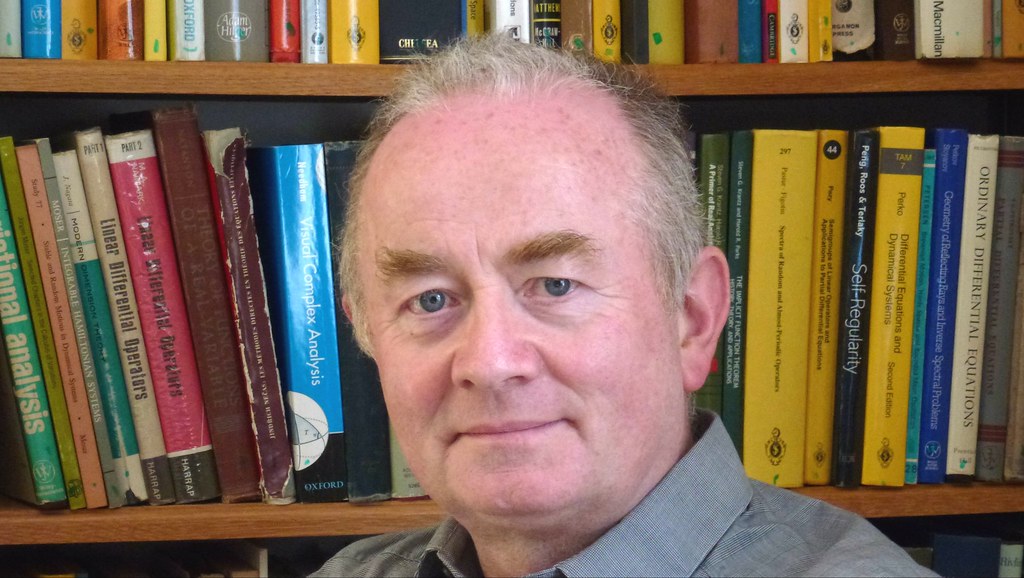'Vice-Chancellor,
It gives me great pleasure to introduce Professor John Toland, a mathematician who has achieved distinction as a researcher and who has contributed significantly to the mathematical community. John Toland is one of the United Kingdom's foremost practitioners of the branch of Mathematics known as Nonlinear Analysis, which investigates problems in Applied Mathematics and Mathematical Physics by methods from modern Pure Mathematics.
Born in Londonderry, John attended Queen's University Belfast, from which he graduated in Pure Mathematics. Graduate studies at the University of Sussex led to an MSc. and then a DPhil. Following this, he was appointed to a Fellowship at the University of Essex's Fluid Mechanics Research Institute, then newly established and attempting a synthesis of approaches ranging from experimentation to the most theoretical mathematics. Here he began research into surface waves on water, especially the long-standing Stokes conjectures on the existence and structure of solitary waves and wave-trains that have engaged him throughout his career.
He spent two years at University College London, then accepted, at the age of 32, a Professorship at the University of Bath. In his task of building Pure Mathematics at Bath he continued to promote the interaction between Pure and Applied Mathematics and soon attracted a talented group with a distinctive research profile onto the staff.
John was Head of the School of Mathematical Sciences in the mid-1980s when the Science and Engineering Research Council launched its Nonlinear Systems initiative. Bath benefited from this through the funding of a Nonlinear Mathematics MSc. programme and a major international conference on the Mathematics of Nonlinear Systems.
In 1997, he secured one of the very few Senior Fellowships awarded by the Research Council, allowing him to concentrate on his research for five years. He began a significant collaboration with Pavel Plotnikov of the Russian Academy of Sciences' Hydrodynamic Institute in Novosibirsk, who made a nine-month visit to Bath in 2007/8. Together, they pushed forward the state of knowledge regarding the Stokes conjectures, including information about the shape for a wave of greatest height.
On the expiry of his Fellowship, John's return to standard academic duties was cushioned by serving part-time as Director of the International Centre for Mathematical Sciences in Edinburgh. After his Edinburgh experience, John was well-qualified to accept the higher profile and full-time post of Director of the Isaac Newton Institute for Mathematical Sciences in Cambridge, when this was offered in 2011, and he left Bath after 29 years.
John has been President of the London Mathematical Society, which is effectively our national mathematical society, and he has served on the Research Assessment Exercise and its successor, the Research Excellence Framework, in the latter case as the Chairman of the Mathematical Sciences subcommittee. He is also a member of the Executive Committee of the International Mathematical Union, the organisation that awards the Fields Medals, where his activities include the subcommittee that oversees Mentoring African Research in Mathematics. Despite these commitments, he has published over a hundred research articles, most of substantial length, and is co-author of two books.
John's diverse activities have earned him many honours, including the London Mathematical Society's Senior Berwick Prize and election as a Fellow of the Royal Society; he was the very first recipient of the University of Bath Vice-Chancellor's Medal for Research.
Vice-Chancellor, I present to you John Toland, who is eminently worthy to receive the degree of Doctor of Science, honoris causa.'
Professor Geoffrey Burton
Orator
